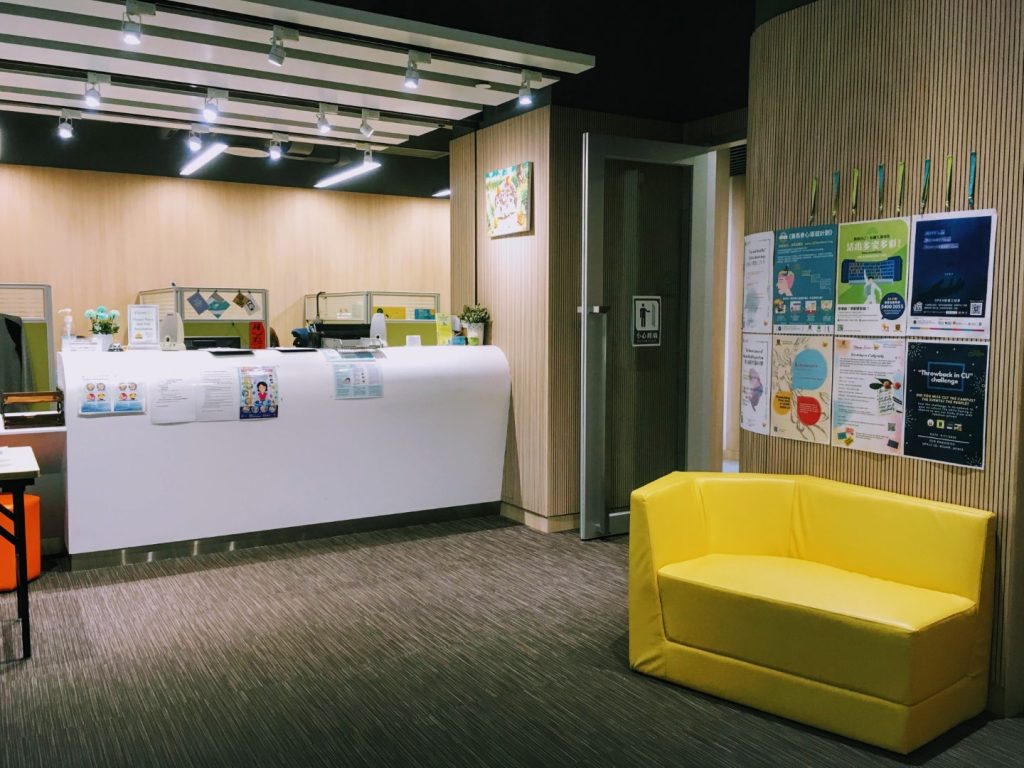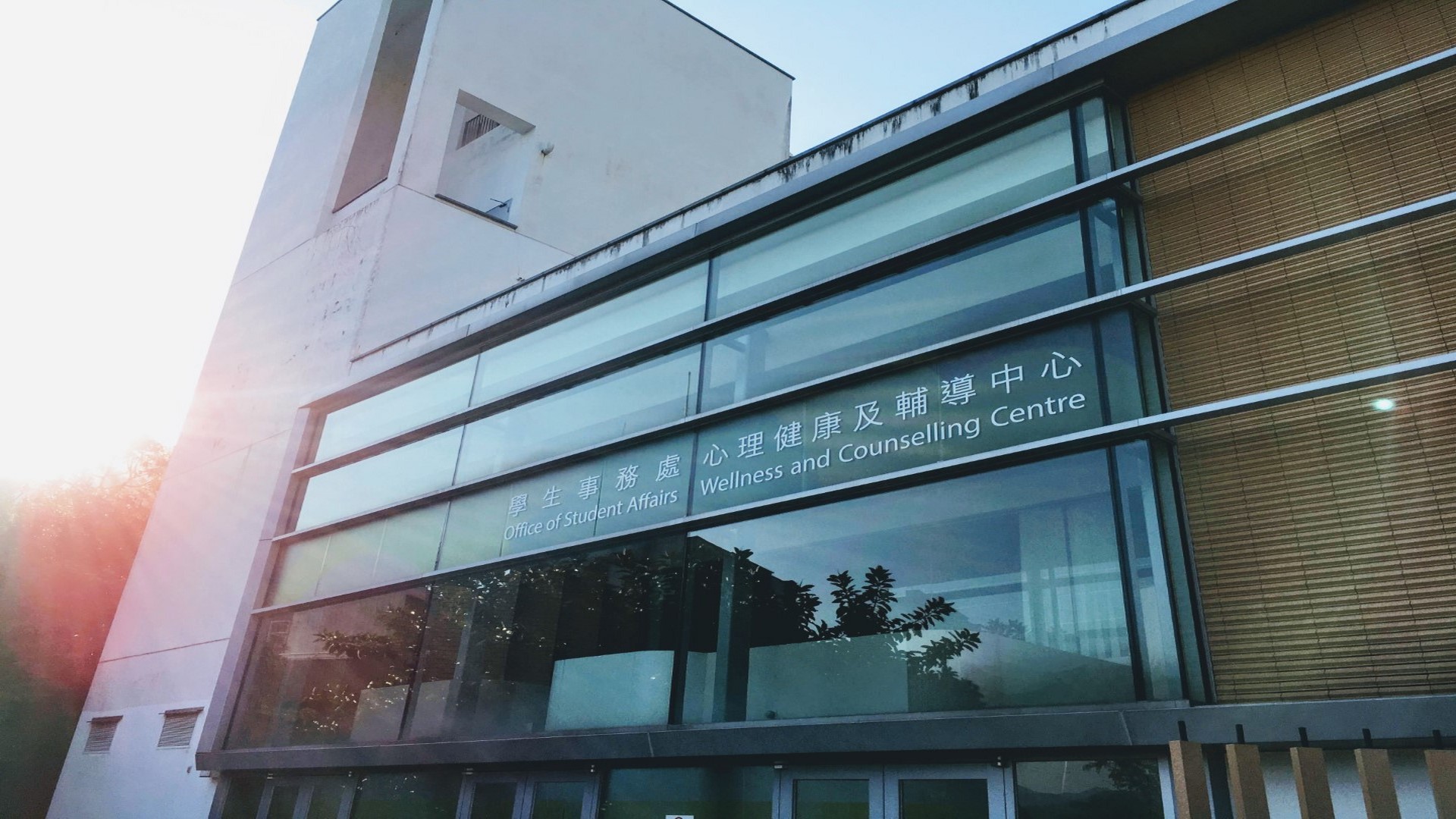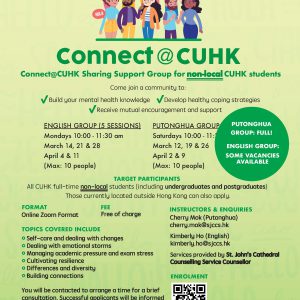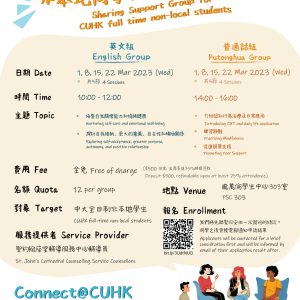Wellness and Counselling Centre (WACC) of the Office of Student Affairs has been established primarily to help students to overcome psychological barriers and difficulties, which may impede their functioning, adjustment and personal development. Through this page, we hope to be able to clarify some of the common myths and misconceptions as well as help students gain a deeper understanding of the true nature and goals of psychological counselling.
Facts About Counselling
Myth: It is better to be self-reliant than to depend on others. Asking for help is a sign of weakness?
Fact: Facing stressful or painful experiences can be overwhelming at times, and it often takes courage and determination to overcome adversities. Instead of fostering dependency, a primary goal of counselling is to empower students to help themselves. Through the counselling process, students are encouraged to manage their emotions, understand the nature of their problems, develop different perspectives as well as learn effective coping skills.

Myth: Only abnormal people or people with serious mental problems will seek counselling?
Fact: Psychological counselling has preventive, remedial and educational functions. While helping students who are experiencing various emotional disturbances or personal crises, counselling is also a learning process, which facilitates self-exploration and personal growth. Through counselling, students can work on immediate concerns and developmental issues, such as university adjustments, studies, conflicts with others, emotional management, personality, relationships and family issues. Early detection and management can often expedite the resolution of problems, while avoidance and procrastination might result in the escalation of minor disturbances into major difficulties.
Myth: Only a Counsellor, whose background and experiences are similar to mine, can understand my situation and difficulties?
Fact: Through professional training, Counsellors have developed the sensitivity and empathy to understand, accept and respect students from different backgrounds. They are able to be ‘student-centered’, i.e. to take into consideration students’ unique experiences, needs and value system when exploring problems and solutions. Counsellors will stay objective. Their personal political views, religion or beliefs will not interfere with the counselling process.

Myth: The Counsellor will tell me what I can do to solve my problems?
Fact: The Counsellor will not impose his/her values and opinions on students but will help them gain deeper understanding into their thoughts, feelings, needs and behaviours. More importantly, the Counsellor will encourage students to assume personal responsibility for their own actions, to develop objective and rational perspectives as well as to make choices and changes appropriate to their individual circumstances.
Myth: The Counsellor may disclose my personal secrets or the contents of our counselling sessions to others?
Fact: The Counsellor will safeguard the student’s rights to privacy and ensure confidentiality regarding the contents of counselling. Hence, under normal circumstances, personal information or matters discussed during the counselling process will not be disclosed to third parties without the student’s consent. However, there are circumstances where the Counsellor may notify relevant parties in order to safeguard the well-being of the persons concerned, for example, when the student’s personal safety or that of others is being threatened. Details could be found on WACC website.

How can I make an appointment?
- By telephone: Call WACC at 3943 7208 or 3943 3493 within office hours to arrange an appointment;
- Through internet: Online booking via WACC Initial Assessment Booking Service (For registered full-time undergraduate and postgraduate students who are new users of WACC counselling service only);
- In person: Visit WACC (located in 2/F Pommerenke Student Centre) within office hours to make an appointment.
If you have an urgent need to see a counsellor, you may visit WACC during office hours. The Duty Counsellor will assess your needs and make appropriate arrangements with you. If you need counselling service during non-office hours, please call the CUHK 24-hour Emotional Support Hotline at 5400 2055 (exclusively for CUHK Full-time Students and Part-time PGDE Students), or seek help from other Counselling Hotlines / Online Counselling Services.







